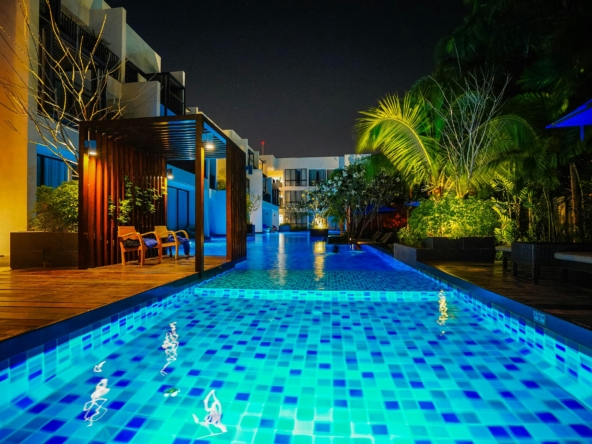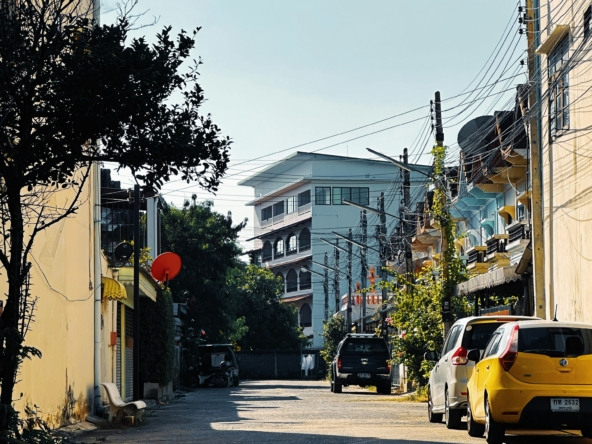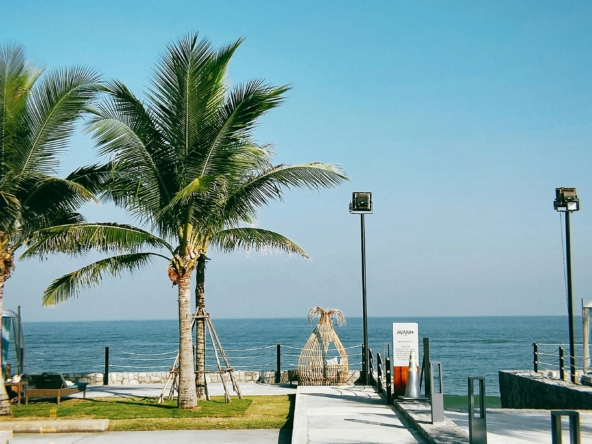Buying property in Thailand, whether in Hua Hin or other popular areas, can be an exciting investment or dream home purchase. However, many buyers—especially foreigners—may not be fully prepared for the additional costs that come beyond the listed price. Understanding these hidden expenses is crucial for budgeting accurately and avoiding surprises during your property purchase.
Here’s a comprehensive guide to the common hidden costs you should plan for when buying property in Thailand.
1. Transfer Fees and Taxes
When you purchase property, the Land Office charges several fees that are often shared between buyer and seller but sometimes fall primarily on the buyer:
-
Transfer Fee: Usually 2% of the registered sale price, payable at the Land Office.
-
Stamp Duty: Around 0.5% of the registered sale price, applicable if specific business tax is not paid.
-
Specific Business Tax (SBT): 3.3% of the registered sale price, usually charged if the property is sold within five years of acquisition. Paid by the seller, but always confirm.
-
Withholding Tax: Typically paid by the seller but depends on the transaction type and seller’s status.
Be sure to clarify who pays what during negotiations and factor these fees into your budget.
2. Legal and Due Diligence Fees
Hiring a qualified Thai lawyer is highly recommended to:
-
Verify the seller’s ownership and property title deed status.
-
Review and draft contracts to protect your interests.
-
Conduct due diligence to uncover any debts, liens, or disputes attached to the property.
Legal fees typically range from 1% to 3% of the property price, depending on the complexity.
3. Foreign Exchange and Bank Fees
If you’re transferring funds from abroad, you’ll incur:
-
Currency Conversion Costs: Banks or transfer services may charge fees or offer less favorable exchange rates.
-
Transfer Fees: Both sending and receiving banks may charge fees.
-
Foreign Exchange Transaction Form (FET): Required to prove funds came from abroad legally.
Plan for these costs when moving large sums into Thailand.
4. Property Management and Maintenance
If you buy a condo or villa for investment or seasonal use, ongoing costs include:
-
Condo Common Fees: Monthly fees for maintenance, security, and shared utilities. These vary depending on building size and facilities.
-
Property Management Fees: For villas, if you hire a management company to care for your home when you’re away.
-
Maintenance and Repairs: Budget for regular upkeep, repairs, and renovations.
5. Utility Connection and Setup Fees
Some properties may require:
-
Connection fees for water, electricity, internet, and cable TV.
-
Installation costs for air conditioning or other appliances if not included.
-
Deposits for utility accounts.
These are often overlooked but can add up quickly.
6. Agent Commissions
If you use a real estate agent, commission fees typically range from 3% to 5% of the sale price. Sometimes the seller pays this, but confirm beforehand. Budgeting for agent fees ensures no surprises.
7. Miscellaneous Costs
-
Furniture and Appliances: Most properties in Thailand are sold unfurnished or partially furnished. Factor in furnishing costs if needed.
-
Renovations: Depending on your preferences, you may want to upgrade or personalize your property.
-
Taxes and Fees for Foreigners: Additional legal fees or taxes may apply depending on your visa and ownership structure.
Final Thoughts
Buying property in Thailand offers many opportunities, but hidden costs can significantly affect your budget if you’re unprepared. By understanding transfer fees, legal costs, currency issues, and ongoing expenses, you can plan effectively and make a confident purchase.
If you’re ready to explore Hua Hin real estate or want assistance with budgeting your purchase, contact us today. We’re here to guide you every step of the way!




